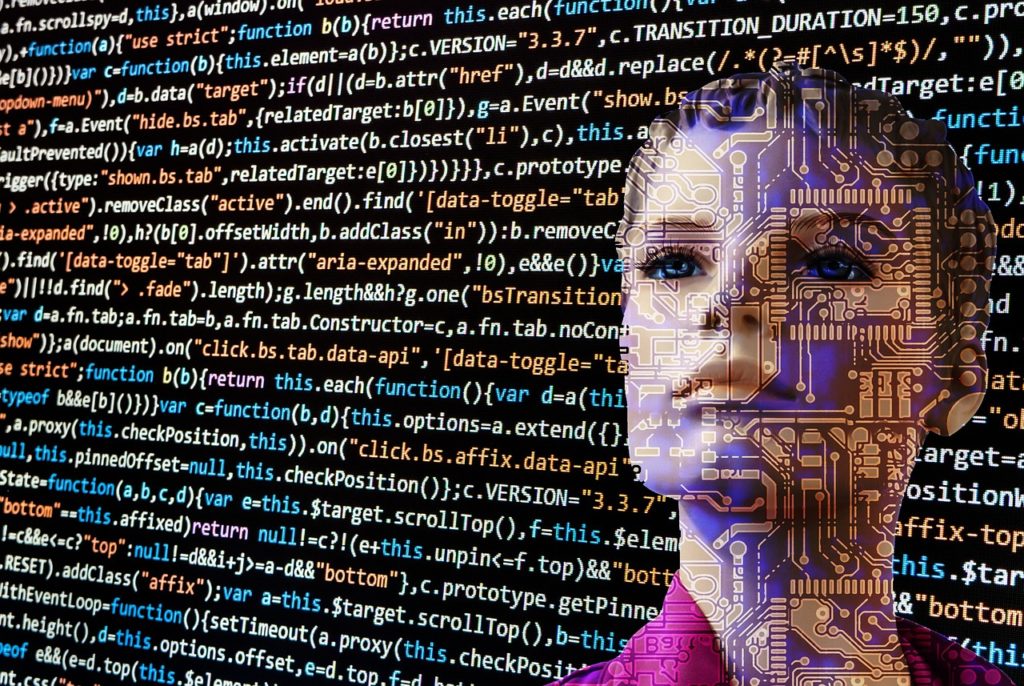Commercial Feature
AI’s Impact on Students, Graduates, and the Future of Work

We recently caught up with Elizabeth Knight, head of business development at the innovative no-code chatbot platform chitchatbot.ai, to discuss the transformative role of artificial intelligence in the lives of students, the experience on campus, and the ever-changing landscape of the future job market.
It feels like the conversation around AI has moved from tech boardrooms to university campuses. How is AI reshaping the student experience?
“It’s a seismic shift, and it’s happening incredibly fast. For students today, AI isn’t some far-off concept; it’s a tool they’re using right now to learn more effectively. Think of it as a personal tutor available 24/7. AI can help students break down complex topics, get instant feedback on their work, and even create personalised study plans. This isn’t about replacing the lecture hall, but enhancing it. The student experience is becoming more dynamic and tailored to individual learning styles. As I see it, AI is democratising education by providing every student with resources that were once only available to a select few.”
With tools like ChatGPT becoming commonplace, what does this mean for graduates entering the job market?
“For graduates, AI fluency is rapidly becoming as crucial as basic computer literacy was a generation ago. The job market of tomorrow won’t just be about what you know, but how effectively you can use AI to augment your skills. We’re already seeing a surge in demand for graduates who can leverage AI tools for data analysis, content creation, and problem-solving. It’s not about being a coder or a data scientist; it’s about being an ‘AI-augmented’ professional. The graduates who will thrive are those who see AI not as a threat, but as a powerful collaborator that can unlock new levels of creativity and efficiency.”
How do you see AI impacting the types of jobs available to graduates in the next five to ten years?
“The narrative of ‘robots taking our jobs’ is outdated. Instead, AI is creating entirely new roles that we couldn’t have imagined a decade ago. We’ll see a rise in positions like ‘AI Ethicist,’ ‘Prompt Engineer,’ and ‘AI-Human Interaction Designer.’ The more mundane, repetitive tasks will be automated, freeing up graduates to focus on strategic thinking, creativity, and complex problem-solving – the very skills that a university education is designed to foster. The key for graduates will be adaptability and a commitment to lifelong learning. The job you start in might not exist in ten years, but the skills you develop alongside AI will be transferable and highly valuable.”
Beyond academics, how can universities leverage AI to improve the overall student experience?
“The potential is enormous. Imagine an AI-powered campus assistant that can help students navigate everything from registering for courses and finding library resources to connecting with mental health support and discovering extracurricular activities that match their interests. This goes beyond a simple Q&A bot. We’re talking about a proactive, personalised guide to university life. It can help reduce administrative friction, allowing students to focus more on their studies and personal growth. Universities that embrace AI to create a seamless and supportive student journey will not only attract top talent but also foster a more engaged and successful student body.”
With the rise of AI, what advice would you give to a student choosing a degree today?
“My advice would be to focus on uniquely human skills that AI can’t easily replicate: critical thinking, emotional intelligence, creativity, and collaboration. Choose a degree that excites you and teaches you how to think, not just what to think. Whether you’re studying history or computer science, the ability to analyse information, construct a compelling argument, and work effectively with others will be paramount. I would also strongly encourage students to actively engage with AI tools throughout their studies. Use them, experiment with them, and understand their capabilities and limitations. This hands-on experience will be an invaluable asset, regardless of their chosen career path.”
Looking ahead, how do you envision the relationship between graduates and AI in the workplace of the future?
“I believe the future workplace will be a partnership between human talent and artificial intelligence. Graduates won’t be competing with AI; they’ll be commanding it. Your AI assistant will be your co-pilot, handling data analysis, drafting communications, and managing your schedule, allowing you to focus on the bigger picture. This synergy will lead to unprecedented levels of innovation and productivity. The future of work is not about man versus machine, but man with machine. The graduates who embrace this collaborative approach will be the leaders and innovators of their generation.”
 News / 27% of Cantabs have parents who attended Oxbridge13 June 2025
News / 27% of Cantabs have parents who attended Oxbridge13 June 2025 News / Downing’s rugby team apologises over ‘inexcusable’ social media post12 June 2025
News / Downing’s rugby team apologises over ‘inexcusable’ social media post12 June 2025 News / 2025: The death of the May Ball? 13 June 2025
News / 2025: The death of the May Ball? 13 June 2025 Comment / Why Cambridge needs college chapels11 June 2025
Comment / Why Cambridge needs college chapels11 June 2025 News / Academics seek to restrict University’s use of injunctions 16 June 2025
News / Academics seek to restrict University’s use of injunctions 16 June 2025




